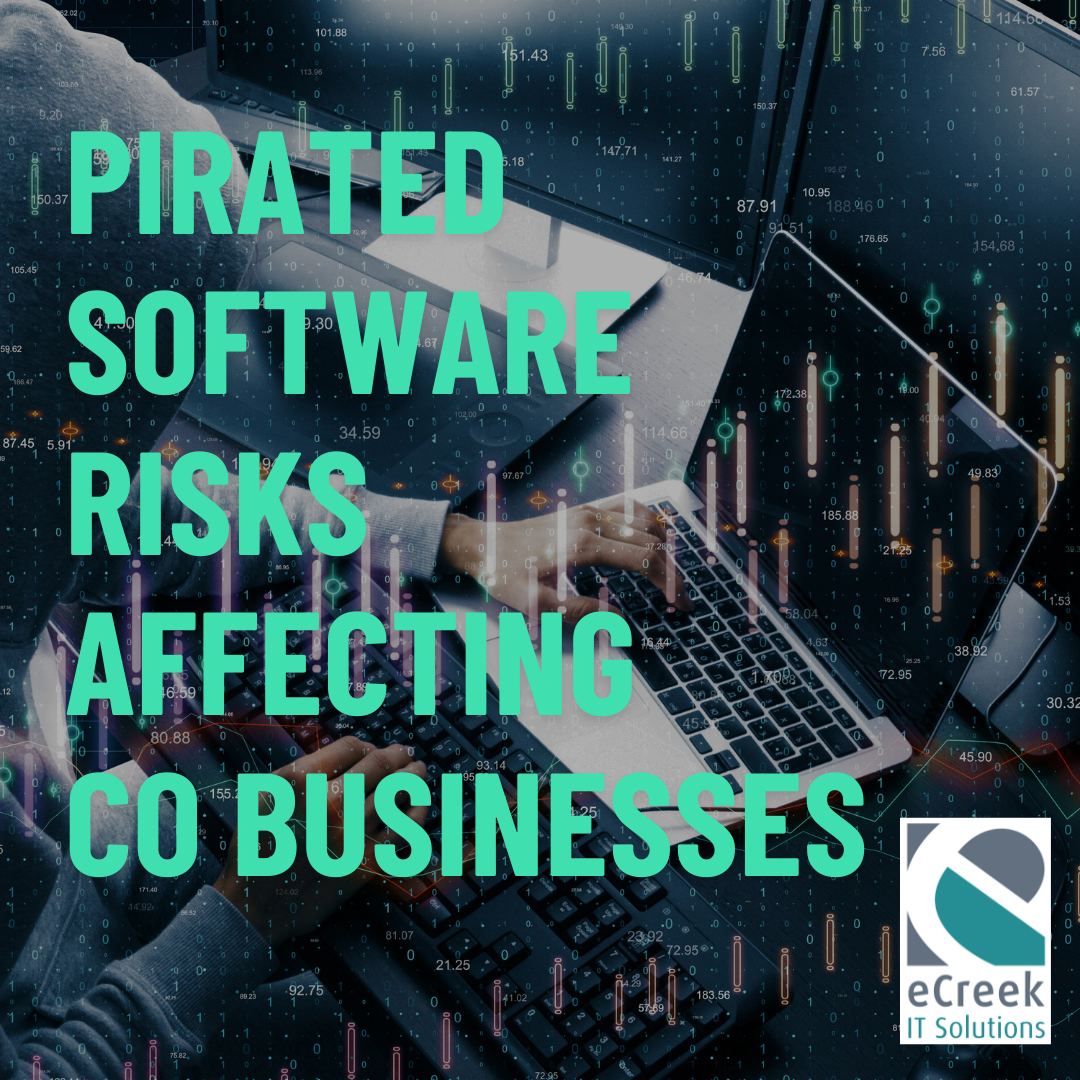
The Hidden Cost of “Free”: How Pirated Software Is Putting Denver & Boulder Businesses at Risk
If there’s one thing we’ve learned in business—and in life—it’s that if something sounds too good to be true, it usually is. That’s especially true when it comes to pirated software.
Here in Denver and Boulder, where businesses are built on trust, hard work, and a little bit of that Colorado grit, there’s a growing cybersecurity threat that’s sneaking in through the back door: malware disguised in pirated or cracked software.
Let’s talk about what that means, why it’s putting local companies at risk, and how we can fix it.
Malware Loves a Shortcut
We get it—cutting costs is part of running a lean operation. But downloading free or “unlocked” versions of software from sketchy corners of the internet is like inviting a stranger into your office and handing them the keys to your filing cabinet.
Cybercriminals are hiding malware in pirated programs, waiting for someone to open the door. Once in, that malware can steal sensitive data, spy on your operations, or shut things down altogether. And that’s not just a problem for big corporations—it’s hitting small and mid-sized businesses right here in the Front Range.
Malvertising: A Fancy Word for a Bad Idea
A lot of these piracy websites are loaded with malicious ads—also called “malvertising.” Click one wrong banner or pop-up, and boom—you’ve downloaded more than you bargained for. Studies show that a huge percentage of piracy sites are actually just traps set to serve up malware.
So even if you’re not downloading pirated files yourself, just visiting these sites can be dangerous. It’s a risk not worth taking.
Real Damage, Close to Home
We’ve seen it happen too many times. A Denver business thinks they’re saving a few bucks, and next thing you know, they’re calling us in a panic because their system’s locked up, or worse, their customer data has been compromised.
Even Boulder’s innovative startups and non-profits—organizations doing amazing work in our community—aren’t immune. This threat doesn’t care how noble your mission is or how careful you’ve been until now.
When Home Follows You to Work: The Hidden Risk of Personal Piracy
Sometimes, the danger doesn’t come through the front door—it walks in with your team.
Even the most well-meaning employees can unknowingly put your business at risk by using pirated software for personal projects on company devices, or by connecting compromised personal laptops or USB drives to your network. It might be a cracked version of Photoshop they downloaded to design a flyer, or a “free” game they grabbed for lunch breaks—but that’s all it takes.
Malware doesn’t care who downloaded it. Once it’s on a device connected to your company network, it can spread like wildfire—exposing sensitive data, slowing down your systems, and opening the door to cyberattacks.
This is especially common in hybrid or remote work setups, where personal and professional devices often blur together. That’s why clear cybersecurity policies, regular training, and device management tools are so important.
A friendly reminder from us to you: A team that’s aware is a team that’s secure.
The Real Cost of Pirated Software
Let’s break it down:
-
Legal Fines – Using unlicensed software can lead to some serious financial penalties.
-
Data Loss – Malware from pirated software can steal or destroy your sensitive files.
-
Downtime – One infected file can bring your whole business to a halt.
-
Reputation Hit – If your clients’ data is compromised, it’s tough to rebuild that trust.
All of that over a piece of software that might’ve cost a few hundred bucks?
How to Protect Your Business (The Right Way)
Here’s how to stay on the safe side:
-
Always use licensed software from trusted vendors.
-
Keep your systems updated—those patches fix known vulnerabilities.
-
Train your team to spot red flags and avoid risky downloads.
-
Install strong cybersecurity tools like firewalls, antivirus, and endpoint protection.
-
Have a backup plan—literally. Your data should be securely backed up and ready to restore.
We’ve Got Your Back
At eCreek IT, we help businesses across Denver and Boulder stay safe, efficient, and compliant—without shortcuts. Whether you need managed IT support, real cybersecurity protection, or just someone to call when you’re not sure what to click, we’re here for you.
Cybersecurity doesn’t have to be scary. It just takes the right partner. And hey, like we always say—peace of mind is a pretty great ROI.
Need help protecting your systems the right way?
Let’s have a conversation. Call eCreek IT Solutions today and let’s build something secure—together.



